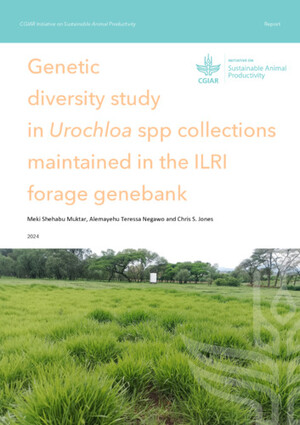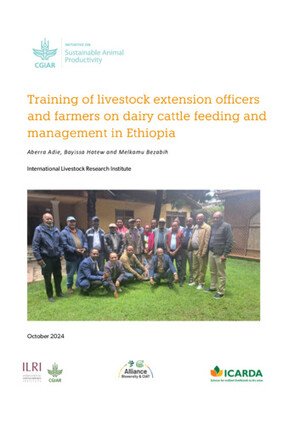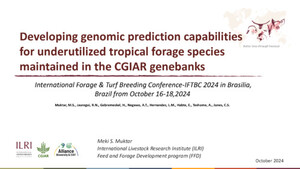
Effects of bacteriocin-producing Lactiplantibacillus plantarum on bacterial community and fermentation profile of whole-plant corn silage and its in vitro ruminal fermentation, microbiota, and CH4 emissions
Abstract
Background
Silage is widely used to formulate dairy cattle rations, and the utilization of antibiotics and methane emissions are 2 major problems for a sustainable and environmentally beneficial ruminant production systems. Bacteriocin has received considerable attention because of its potential as an alternative to antibiotics in animal husbandry. However, the impact of bacteriocin-producing lactic acid bacteria on the microbiological conversion process of whole-plant corn silage and rumen fermentation remains limited. The purpose of this study was to assess the effect of 2 class IIa bacteriocin-producing strains Lactiplantibacillus plantarum ATCC14917 and CICC24194 on bacterial community composition and ensiling profiles of whole-plant corn silage and its in vitro rumen fermentation, microbiota, and CH4 emissions.
Results
Both bacteriocin-producing strains increased the lactic acid concentration in silage fermented for 7 d, whereas the lowest lactic acid was observed in the ATCC14917 inoculated silage fermented for 90 d (P < 0.05). The highest DM content was observed in the CICC24194 treatment (P < 0.05), and the silages treated with both strains had the lowest DM loss (P < 0.05). Bacteriocin-producing strains promoted the growth of Levilactobacillus brevis on d 60 of ensiling. In addition, treatment with bacteriocin-producing strains increased the in vitro DM digestibility (P < 0.05) and decreased the CH4 production (P < 0.05). The results of random forest and clustering analyses at the genus level showed that ATCC14917 increased the relative abundance of the influential variable Bacillus compared to that in the control group, whereas CICC24194 decreased the relative abundance of the influential variable Ruminococcaceae UCG-005. The CICC24194 treatment had the lowest total bacterial, fungal, protozoan, and methanogen populations (P < 0.05).
Conclusions
Both class IIa bacteriocin-producing L. plantarum strains improved the fermentation quality of whole-plant corn silage by regulating the bacterial community composition during ensiling, with CICC24194 being the most effective. Both bacteriocin-producing strains mitigated CH4 production and improved digestibility by modulating the interactions among rumen bacteria, protozoa, methanogens, and the composition of fibrolytic bacteria.
Citation
Ziqian Li, Usman, S., Jiayao Zhang, Yixin Zhang, Su, R., Hu Chen, Qiang Li, Mengya Jia, Amole, T.A. and Xusheng Guo. 2024. Effects of bacteriocin-producing Lactiplantibacillus plantarum on bacterial community and fermentation profile of whole-plant corn silage and its in vitro ruminal fermentation, microbiota, and CH4 emissions. Journal of Animal Science and Biotechnology 15:107.










